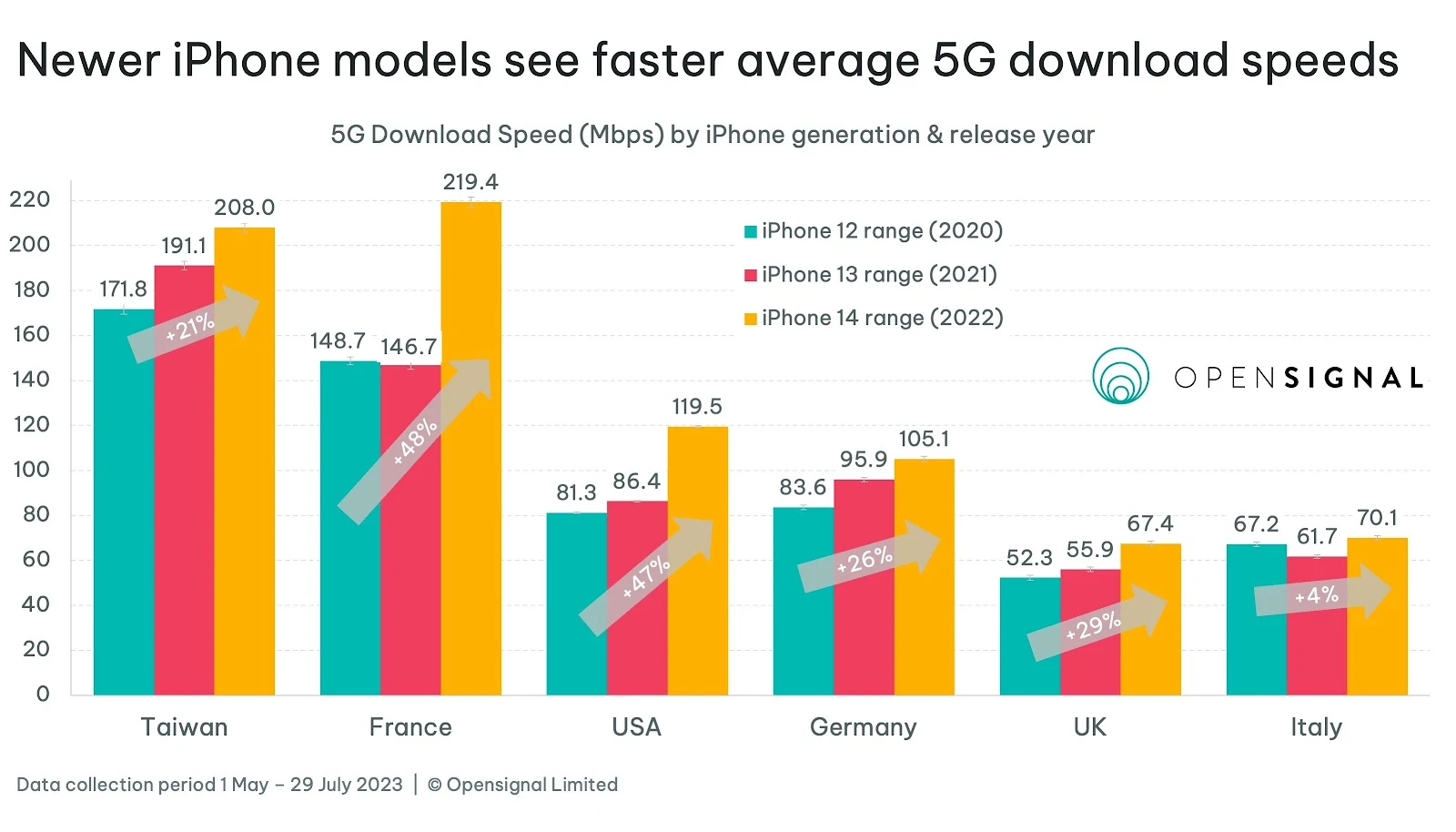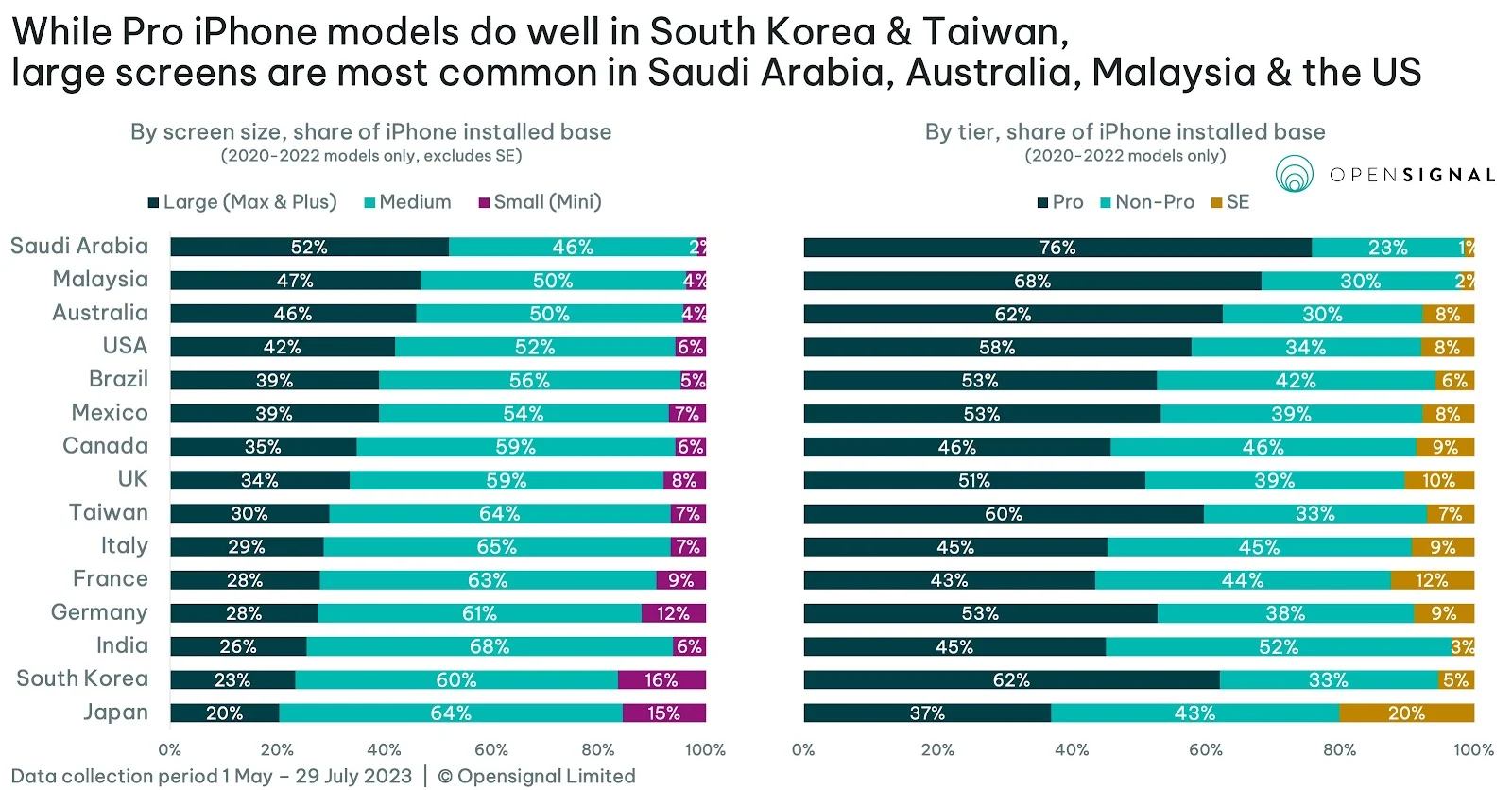Every time Apple launches a new iPhone, it shows considerable improvements over previous models. The iPhone 12 was the first iteration of Apple’s flagship device that offered support for 5G, but subsequent models have been able to provide ever greater speeds from this network with all things having been considered and taken into account. A new report by Opensignal just revealed how much of a difference can be seen between the iPhone 12 and the iPhone 14, as well as what this means for the upcoming launch of the iPhone 15.
It turns out that there was a 47% increase in the range of 5G speeds offered by the iPhone 14 as compared to the iPhone 12. France saw an even greater uptick of 48%, and while most countries didn’t see similarly dramatic levels of growth, they nonetheless saw improvements in terms of 5G speed ranges. The UK saw a 29% differential between the iPhones 12 and 14, Germany saw 26%, Taiwan 21%, and only Italy hardly saw any progress with just a 4% increase.
With all of that having been said and now out of the way, it is important to note that the iPhone 14 was built to cater to the latest standards in 5G. It will be interesting to see how the iPhone 15 is able to take this forward, since it will contain even more advanced components.
The same trend can be seen with 4G as well. France saw a whopping 83% increase in 4G speeds between the iPhone 11 and the iPhone 14, although the difference between the iPhone 12 and iPhone 14 wasn’t quite as dramatic coming in at just 11%.
This just goes to show that making an upgrade can help users get far better internet speeds, especially when they are two or more models behind. With 5G seeing more and more advancement each year, the iPhone 15 may represent the biggest leap forward yet, and it will pave the way for more connectivity between all of its users. The 5G speed test will be critical for determining its potential for success.
Read next: iOS Apps Earn 700% More than Android, New Research Reveals
It turns out that there was a 47% increase in the range of 5G speeds offered by the iPhone 14 as compared to the iPhone 12. France saw an even greater uptick of 48%, and while most countries didn’t see similarly dramatic levels of growth, they nonetheless saw improvements in terms of 5G speed ranges. The UK saw a 29% differential between the iPhones 12 and 14, Germany saw 26%, Taiwan 21%, and only Italy hardly saw any progress with just a 4% increase.
With all of that having been said and now out of the way, it is important to note that the iPhone 14 was built to cater to the latest standards in 5G. It will be interesting to see how the iPhone 15 is able to take this forward, since it will contain even more advanced components.
The same trend can be seen with 4G as well. France saw a whopping 83% increase in 4G speeds between the iPhone 11 and the iPhone 14, although the difference between the iPhone 12 and iPhone 14 wasn’t quite as dramatic coming in at just 11%.
This just goes to show that making an upgrade can help users get far better internet speeds, especially when they are two or more models behind. With 5G seeing more and more advancement each year, the iPhone 15 may represent the biggest leap forward yet, and it will pave the way for more connectivity between all of its users. The 5G speed test will be critical for determining its potential for success.
Read next: iOS Apps Earn 700% More than Android, New Research Reveals





